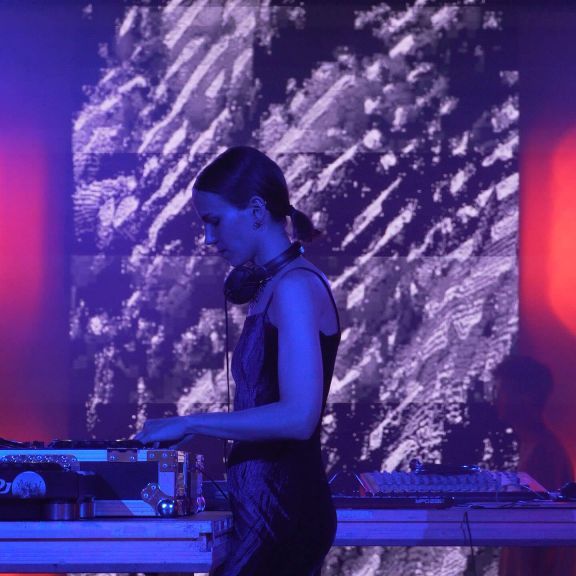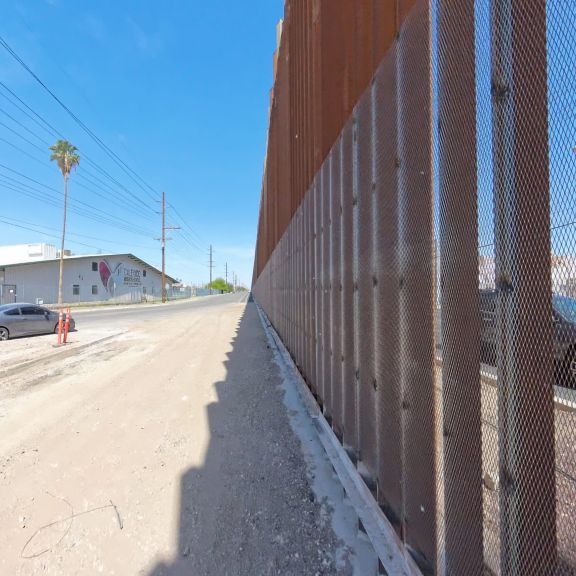
The events that have recently taken place in Kiev resemble a cheap action movie, but there is a much more complicated scenario standing behind them. The main parts are played by Mikheil Saakashvili and the President Petro Poroshenko, but there are some more characters in the foreground and in the background, who are really important for the story.
On December 5, the media around the world showed the former President of Georgia Mikheil Saakashvili being pulled down from the roof of a building in the centre of Kiev by the officers of the Ukrainian Security Service. Then he was handcuffed and put in the car. Few hours later Saakashvili was freed from that car by his supporters. It may have looked like a movie, but the truth is, it depicts the drama of Ukrainian politics.
To stop in order to release
On the same day, SBU associates and the investigators of the General Prosecutor’s Office came to the Saakashvili’s Kiev apartment with the detention order. It is difficult to say what procedures were applied, but Saakashvili was not immediately taken from his apartment. Moreover, during the search he managed to escape to the roof and then started to shout about the betrayal of President Poroshenko.
Pavlo Bohomazov, who is Sakashvili’s attorney, informed the public that the former President of Georgia is suspected of ‘supporting a state coup’.
The followers of Saakashvili took advantage of the long-time of investigative work in his apartment and arrived to help him. When the leader of Movement of New Forces was eventually taken out from the apartment and put in a car, his activists blocked the passage of the SBU column and surrounded the vehicle. Saakashvili’s supporters scuffled with the police and the National Guard, the car’s windshield was broken, and several people were injured. People began to destroy the pavement and build small barricades to make the passage difficult.
The Trioswiatytelska Street confrontation, where the SBU car with Saakashvili inside was blocked, lasted several hours. The policemen and the members of the National Guard decided to pull the car towards Mikhailovsky Square. They managed to gain just a few metres. Saakashvili’s supporters were putting more and more pressure, the police used gas again, another window was broken in a car with the detained Saakashvili. Finally, the activists succeeded … and got him back from the hands of the SBU officers. Soon the former Georgian President spoke from the stairs of a nearby Roman Catholic church. He was calling for the President Poroshenko impeachment. And the world saw another picture: Saakashvili speaking through a loudspeaker and the handcuffs dangling from his right hand.
Saakashvili works for Moscow?
When the car with Saakashvili was blocked, the Prosecutor General Yuriy Lutsenko was presenting the investigation material in the case against the former President of Georgia. The allegations were serious as Lutsenko was speaking directly about stopping the ‘Russian winter’ in Kiev – jeopardizing the coup supported by Russia.
The Prosecutor General added that the guilty ones – including politicians who helped Saakashvili – should take not only criminal and administrative responsibility but also political one. And he was talking about ‘those, who supported the political sabbath of Saakashvili.’ – Those lying under the wheels of the SBU car with Saakashvili inside and did not allow him to arrive at the place of interrogation. Saakashvili, who is reasonably suspected of collaborating with the criminal group of Viktor Yanukovych according to the revealed records – emphasized Lutsenko.
The prosecutor’s office accused the Movement of New Forces leader of collaborating with Yanukovych’s people and taking half a million dollars from Serhiy Kurchenko as a payment for organizing protests in Ukraine. Kurchenko is a Ukrainian oligarch who retreated to Russia after the collapse of the Yanukovych regime in 2014 . This young oligarch is believed to be the main treasurer of the Yanukovych family.
Yuriy Lutsenko showed the recordings of phone conversations between Saakashvili and Kurchenko. They were discussing the ways of cooperation and communication. There was also a video showing Kurchenko’s trusted man who was about to give Saakashvili’s colleague 250.000 dollars for hostile activities of the former president of Georgia.
– Severion Dangadze was given about half of the promised amount of money and it was all controlled by the Ukrainian services, even copying banknote numbers and the handover itself – emphasized Prosecutor General.
And there come the doubts. How could SBU get to know the banknotes? Is it possible that they have the recording of the money handover that took place in the car? If it is true, who was recording that? Has the recording been given to the SBU by someone from Kurchenko staff or by Kurchenko himself? If so, what was the price?
Saakashvili denies having contacts with Kurchenko and claims that the presented materials are ‘false’. As for now there are no answers to the above questions. There is no answer to the basic question either: how is it possible that the operation of Saakashvili’s seizure was so ineptly carried out? Especially bearing in mind that he may face few years in prison due to serious accusations. Firstly, the door to his apartment were knocked down. Secondly, instead of taking Saakashvili quickly to the lock-up, one is waiting for the arrival of his supporters.And it was not the first time anyway.
A revolutionist or a political showman?
On July 26 President Petro Poroshenko deprived Mikheil Saakashvili of Ukrainian citizenship, which he had been granted at the end of June 2015. The Ukrainian passport was needed by the former President of Georgia to become the Governor of Ukraine’s Odessa Oblast on 30 May 2015.
President Poroshenko was treating him like a friend back then, and the former Georgian President supported the revolutionary events in Euromaidan in 2013 and 2014. He was supporting Ukrainians reforms as well.
A lot was expected when Saakashvili became the Governor in Odessa. However, he quickly came into conflict with the then prime minister Arseniy Yatsenyuk. Eventually he resigned in November 2016 , accusing President Poroshenko and his entourage of an ineffective fight against corruption.
Saakashvili registered the Movement of New Forces and has gradually criticized the authorities and the President of Ukraine. The official reason for depriving him of citizenship was the concealment of important information while being granted the Ukrainian citizenship. Saakashvili claimed it was an act of political revenge.
On September 10, the former Georgian President, along with some Ukrainian deputies and his supporters, crossed the border between Ukraine and Poland. Although his plans were previously announced, and Saakashvili’s entrance was blocked in various ways, the Ukrainian authorities proved to be surprisingly powerless.
He was subjected to criminal proceedings, but he was still active politically. On October 17 he started the ‘Great Political Reform’ campaign , straight under the Supreme Council of Ukraine. Currently he is staying in a kind of tent town, which is set up near the buildings of the parliament.
A warrant of capture had been issued. On December 6, an attempt to storm the tents by the police and stop the leader of the Movement of New Forces ended in a fiasco. Several people were injured.
Since the conflict has begun, many commentators have pointed out that it is difficult to understand the Ukrainian authorities’ logic. The Movement of New Forces has a public support of not more than 2%. Its street actions have shown that the party is not able to prod more participants.
Perhaps the conflict was determined by political ambitions and mutual resentments of Saakashvili and Poroshenko. Indeed, the former president of Georgia has recently called to put an end to the current ‘corrupted authorities’, however using peaceful methods of so-called ‘people’s impeachment.’ Ito looked like a typical Ukrainian political folklore. It is hard to believe that it could be a part of a broader Russian plan to destabilize the situation in Ukraine.
On the other hand, it has been widely known that Saakashvili has been in touch with Ihor Kolomoyskyi , a Ukrainian oligarch who is not in favour of President Poroshenko. However, Kurchenko is a man of a different level – he is not only wanted by the Ukrainian judicial system, but it is believed that he is also a villain associated with the system created by Yanukovych.
An attempt of distraction?
Saakashvili’s conflict with the authorities is a ‘conflict of people, a conflict of names’. As one of the western diplomats in Kiev states anonymously, the discussion over systemic changes, including the fight against corruption, is far more important for the future of Ukraine. According to Ukrainian experts, Ukraine could have just knocked herself out in that fight.
The news was spread on December 6, that a bill had been introduced to the parliament’s agenda for the next day. The bill regarded the possibility of a vote of no confidence for Artem Sytnyk, the head of the National Anti-Corruption Bureau of Ukraine (NABU) , without an external audit, as required by the binding law. Thus, it would be possible to dismiss Sytnyk automatically , who is in charge of the main a structure fighting against corruption. And NABU is independent from the Ukrainian authorities.
It seems that NABU’s independence was defended by the European Union and the United States, which intervened sharply. The International Monetary Fund has threatened Ukraine with possible consequences. According to local media, Ukraine could have lost a visa-free travel – its last and main achievement in a rapprochement with the European Union,
Fight against corruption is one of the main determinants for the EU and the US in providing support to Ukraine. And NABU is not a favourite organization of Ukrainian authorities since the very beginning, mainly because of its independence.
The conflict has recently escalated. At the end of October, the son of Minister of Internal Affairs Arsen Avakov, was accused of selling National Guard backpack at inflated price.
On November 29, SBU detained an undercover NABU agent who was involved in a secret operation to reveal corruption in the State Migration Service of Ukraine . The Prosecutor General Yuriy Lutsenko accused NABU of using illegal technique for its secret operations (it concerned a listening device) and cooperating with ‘foreign agents’ – the FBI.
On December 6, the Federal Bureau of Investigation announced that it was cooperating with NABU only within the limits of the memorandum signed in June 2016.
It is worth mentioning that the first deputy head of the organization is Hizo Uhlava , the last of Georgians reformers working in the state institutions of Ukraine.
The National Anti-Corruption Bureau of Ukraine was successfully defended, but the blood was spilled. On December 7, the Verkhovna Rada of Ukraine dismissed Yehor Soboliev, the chairman of the Verkhovna Rada Committee on Prevention and Counteracting of Corruption. Soboliev is a member of the opposition party Self Reliance. He had been blocking the appointment of an auditor who would be suitable for the authorities. Moreover, he was active during street protests and he was supporting Saakashvili’s actions.
The same morning, President Petro Poroshenko attacked and presented an ultimatum for the Supreme Council. It regarded the formation of an Anti-Corruption Court. Poroshenko stressed that if the parliament did not make progress in the preparation of the relevant bill by the end of next week, he would bring his ultimatum into consideration in the parliament. It looks like an attempt to improve the image, because the Anti-Corruption Court is – according to experts – the missing element in the fight against corruption.
The question remains, what will happen with Saakashvili, who stands by the walls of the parliament and takes part in mass-meetings…






















